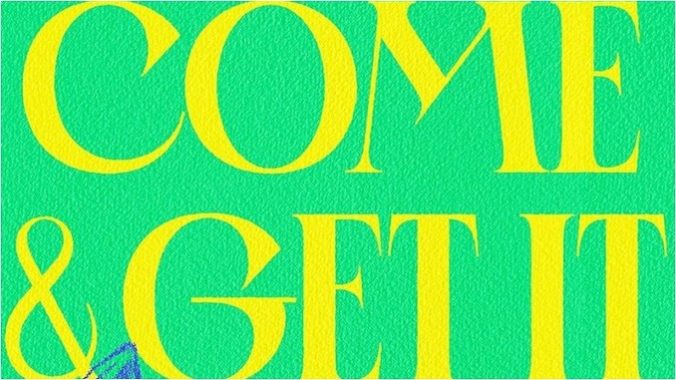Come and Get It Is a Satirical Ode to the Complicated, Imperfect Lives of College Women

It seems best to put it out there fairly plainly: Anyone looking at Reid’s second novel, Come and Get It, and expecting a carbon copy of her buzzy debut, Such a Fun Age, is going to be disappointed. Her first novel, which followed the story of a Black babysitter accused of kidnapping her white charge, was breezy and propulsive, a Reese’s Book Club pick that wrestled with issues of race and class in a way that was entertaining, if not always particularly deep. Her second book is busier and more ambitious, edging on overstuffed at times, and is packed with so many subplots that they almost can’t help but collide together clumsily by the story’s end.
This is a novel that’s primarily centered around money: who has it, who needs it, the power dynamic its presence or absence introduces into relationships, and how affluence affects not just your opportunities but your attitude in life. Especially in college, where young women who can afford to pledge a sorority or spot a round of drinks at the bar for friends are living very different lives from those who pinch pennies or have part-time jobs.
Set in a dorm for transfer students at the University of Arkansas, Reid’s story is grounded in the specificities of a particular place and campus culture. (Anyone who has gone to a school in the South knows what I mean, here.) The book primarily revolves around Millie, a 24-year-old Black RA in her senior year after taking time off to care for an ailing parent. Hard-working and industrious, Millie has fallen in love with Fayetteville and is feverishly saving to buy a house, and it is ultimately her limited income that brings her into contact with Agatha, a visiting professor and journalist who’s working on a book about young Southern women and weddings. But after interviewing several of the girls in Millie’s dorm, who talk about “practice paychecks” and “fun money” and getting paid by their parents’ businesses for jobs they rarely worked, Agatha switches topics. She’s fascinated by their attitudes toward money and the things they deem worth spending it on. She even offers to pay Millie to help her facilitate more interviews with these girls, which ultimately turns into weekly eavesdropping sessions in her dorm room, where Agatha takes in the residents’ commentary unknown and unfiltered before changing their names and selling their stories to Teen Vogue.
The many ethical dilemmas posed by this premise would likely be enough to power the book entirely on its own. Instead, Reid digs into the lives of half a dozen other characters: Agatha’s initial interviewees Jenna, Casey, and Tyler, hilarious on-the-nose examples of a very specific subset of moneyed Southern twentysomethings who find themselves embroiled in a prank war with Millie. Tyler’s roommates, Peyton, a cooking-obsessed loner, and Kennedy, who changed schools after a traumatic incident devastated her emotionally. Millie’s fellow RAs, overachiever Joanie, blase Collete, and Ryland, who is gay and trolls Fayetteville for places giving out free samples.
-

-

-

-

-

-

-

-

-

-

-

-

-

-

-

-

-

-

-

-

-

-

-

-

-

-

-

-

-

-

-

-

-

-

-

-

-

-

-

-








































